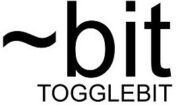What you are getting:
An Arduino DUE microcontroller board, our dual CAN bus prototyping shield and OBDII vehicle cable with flying leads for connecting to your vehicles OBD2 diagnostics port.
Details for the shield are below.
- USB cable for connection to the PC
- The surface mounted CAN bus circuitry is soldered and ready to go. The remaining through-hole parts are provided as kit, meaning stackable headers, jumper headers, and terminal blocks will need to be soldered to the board to fit your application.
- This board includes all stacking headers needed for all pins of the Arduino DUE (excluding ICSP). Stacking headers include: qty 1 – 1×10 for PWM, qty 5 – 1×8 for PWM, COMMS, POWER, ANALOGS, qty 1 – 2×3 for SPI, qty 2 – 1×8 + qty 2 – 1×10 for DIGITALS (combine these to make a 2×18 stacking header)
- 1×3 screw terminals are provided for each CAN ports (CANH, CANL, GND),
- 1X2 male headers & shorting jumpers for termination resistors and loopback function of transceivers
- 1x16pin SOIC breakouts for prototyping surface mount parts with long pads, all pads run to through hole via’s for wire soldering
- 3.3V breakout to through-hole bus, (the DUE processor is a 3.3V part)
- 5V breakout to through-hole bus, GND breakouts to through-hole bus
- all Arduino DUE pins have breakouts to solderable through-hole pads (pad provided for 2nd I2C bus pull-up resistors).
- TIP: Considering the high pin count of the DUE, we recommend only soldering the headers you need for your project as this makes the board more manageable in terms of mating, not bending pins, etc.
Once you’ve received your DUE CAN shield, see our tutorial and sample code on construction and testing the CAN communications.
For communicating with your vehicle via OBD2 see our how-to tutorial.
See the OBDII cable pinout and colors here:
See related post on installing the SPI header
Download PDF Schematic: Arduino_DUE_Shieldbrd_CAN
Download Software Libraries: CAN & OBDII Library for Arduino DUE










